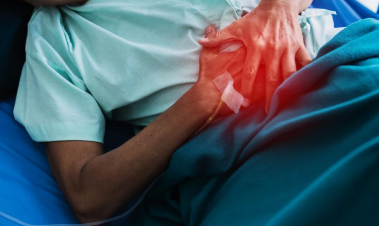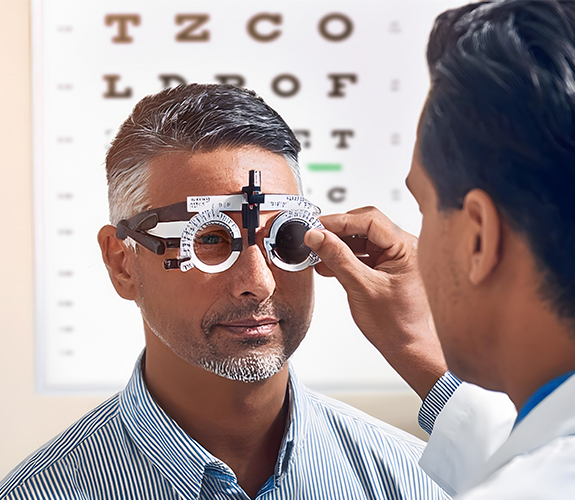Gastroesophageal Reflux Disease (GERD) and Acid Peptic Disease (APD) affect millions of individuals worldwide. These disorders centred around the malfunction of the lower oesophagal sphincter and the backflow of stomach acid into the oesophagus. It can lead to many uncomfortable and sometimes severe symptoms.
What is GERD?
Gastroesophageal reflux disease, or GERD, is a chronic digestive disorder characterised by the backward flow of stomach acid and sometimes stomach contents into the oesophagus. This phenomenon is commonly known as acid reflux.
Symptoms of GERD
-
Heartburn: Perhaps the most well-known symptom of GERD is heartburn, which is described as a burning sensation in the chest, often behind the breastbone. It can sometimes radiate to the neck and throat.
-
Regurgitation: This involves the sensation of food or liquid flowing back into the mouth from the stomach. Patients may also experience problems in swallowing.
-
Chest Pain: GERD can cause chest pain that can be mistaken for a heart attack. It is essential to differentiate between the two.
Causes of GERD
Several factors contribute to the development of GERD:
-
Weak Lower Esophageal Sphincter (LES): The LES is a muscular ring that separates the oesophagus from the stomach. Stomach acid can flow back into the oesophagus when it weakens or relaxes abnormally.
-
Hiatal Hernia: A hiatal hernia occurs when the upper part of the stomach bulges through the diaphragm and into the chest. This can weaken the LES and contribute to GERD.
Diagnosis of GERD
Diagnosing GERD typically involves a combination of clinical evaluation, medical history, and various tests.
-
Medical History: Your healthcare provider will discuss your symptoms, frequency and severity, and any triggers or patterns you've noticed.
-
Upper Endoscopy: This involves the insertion of a thin, flexible tube with a camera (an endoscope) into your oesophagus to inspect for inflammation, damage, or abnormalities visually.
-
Oesophageal pH Monitoring: This test measures the acidity level in your oesophagus over a period of time, helping to confirm the presence of acid reflux.
-
Manometry: Manometry assesses the strength and function of the lower oesophagal sphincter and the oesophagus muscles.
Treatment of GERD
Treatment for GERD aims to alleviate symptoms and prevent complications. It often involves a combination of lifestyle changes, medication, and, in some cases, surgical intervention.
-
Lifestyle Modifications: Lifestyle changes may include weight loss, dietary adjustments, avoiding trigger foods, elevating the head of the bed, and quitting smoking.
-
Medications: Over-the-counter antacids, H2-receptor blockers, and proton pump inhibitors (PPIs) can help reduce stomach acid production and relieve symptoms.
-
Surgery: In severe cases or when medications are ineffective, surgical options like fundoplication may be considered to strengthen the LES.
Exploring APD
Acid Peptic Disease (APD), commonly known as peptic ulcers or gastritis, is a group of gastrointestinal disorders characterised by the erosion of the mucous lining of the stomach or duodenum due to excessive acid production or other underlying factors.
Causes of Acid Peptic Disease (APD)
-
Helicobacter Pylori Infection: One of the primary causes of APD is infection with Helicobacter pylori (H. pylori) bacteria. These bacteria can weaken the protective lining of the stomach and duodenum, making them susceptible to damage from the stomach acids.
-
Nonsteroidal Anti-Inflammatory Drugs (NSAIDs): The chronic use of NSAIDs like aspirin, ibuprofen, and naproxen can irritate the stomach lining and contribute to the development of peptic ulcers.
-
Excessive Stomach Acid Production: Overproduction of stomach acid due to various factors, including stress, smoking, and excessive caffeine or alcohol consumption, can lead to the erosion of the gastric mucosa.
Symptoms of Acid Peptic Disease (APD)
The symptoms of acid peptic disease can vary in severity and may include:
-
Nausea and vomiting: especially if the ulcer is causing obstruction or severe irritation.
-
Heartburn: A burning sensation in the chest, often after eating or lying down.
-
Bloating: A feeling of fullness in the abdomen, even after consuming a small meal.
-
Sudden weight loss: In cases of severe APD or complications, people experienced sudden weight loss.
Diagnosis of Acid Peptic Disease (APD)
To diagnose acid peptic disease, a healthcare provider may perform the following tests:
-
Endoscopy: A flexible tube with a camera is inserted through the mouth to examine the stomach and duodenum directly. This can also be used to take tissue samples for biopsy.
-
Upper GI Series: A series of X-rays are taken after drinking a barium solution to visualise the digestive tract.
-
H.pylori testing: This can be done through a blood test, stool test, or breath test to detect the presence of H. pylori bacteria.
-
Blood tests: to check for anaemia or other signs of bleeding
Treatment of Acid Peptic Disease (APD)
Here's an overview of the common treatment strategies:
- Lifestyle Modifications- Patients are advised to avoid foods that can exacerbate symptoms, such as spicy foods, citrus fruits, caffeine, chocolate, and fatty or fried foods. Patients must avoid smoking and keep their weight in watch.
- Medications- Doctors recommend medications to treat Acid Peptic Disease (APD). These include antacids, proton pump inhibitors (PPIs) and many others.
- Surgery- Surgery is reserved for non-responsive cases or complications like perforation or bleeding ulcers. Surgical options may include ulcer removal, vagotomy (to reduce acid production), or fundoplication (for severe GERD).
Conclusion
GERD and APD are two gastrointestinal conditions that, though different in many ways, share a common theme of disrupting digestive health and impacting overall well-being. Saroj Super Speciality Hospital is a leading healthcare institution that offers the best treatment options for GERD and APD. With a team of experienced gastroenterologists, advanced technology, and a comprehensive approach, the hospital ensures the highest quality care for patients. Whether through lifestyle modifications, medications, endoscopic procedures, or surgical interventions, Saroj Super Speciality Hospital provides effective solutions to relieve symptoms and improve patients' overall well-being.
FAQs About GERD And APD
Ques 1. What are GERD and APD?
Ans. GERD stands for Gastroesophageal Reflux Disease. It's a chronic digestive disorder where stomach acid flows back into the oesophagus, leading to symptoms like heartburn, regurgitation, and chest pain.
APD (atrophic gastritis) is a condition characterised by inflammation and degeneration of the stomach lining. This can impair the stomach's ability to produce acid and digestive enzymes.
Ques 2. Can lifestyle changes help manage both GERD and APD?
Ans. Yes, lifestyle changes like dietary adjustments, weight management, and smoking cessation can benefit individuals with GERD and APD.
Ques 3. When should I see a doctor if I suspect I have GERD or APD?
Ans. If you experience persistent or severe symptoms such as heartburn, regurgitation, abdominal discomfort, or unexplained weight loss, it's essential to consult a healthcare professional for an accurate diagnosis and appropriate treatment.



